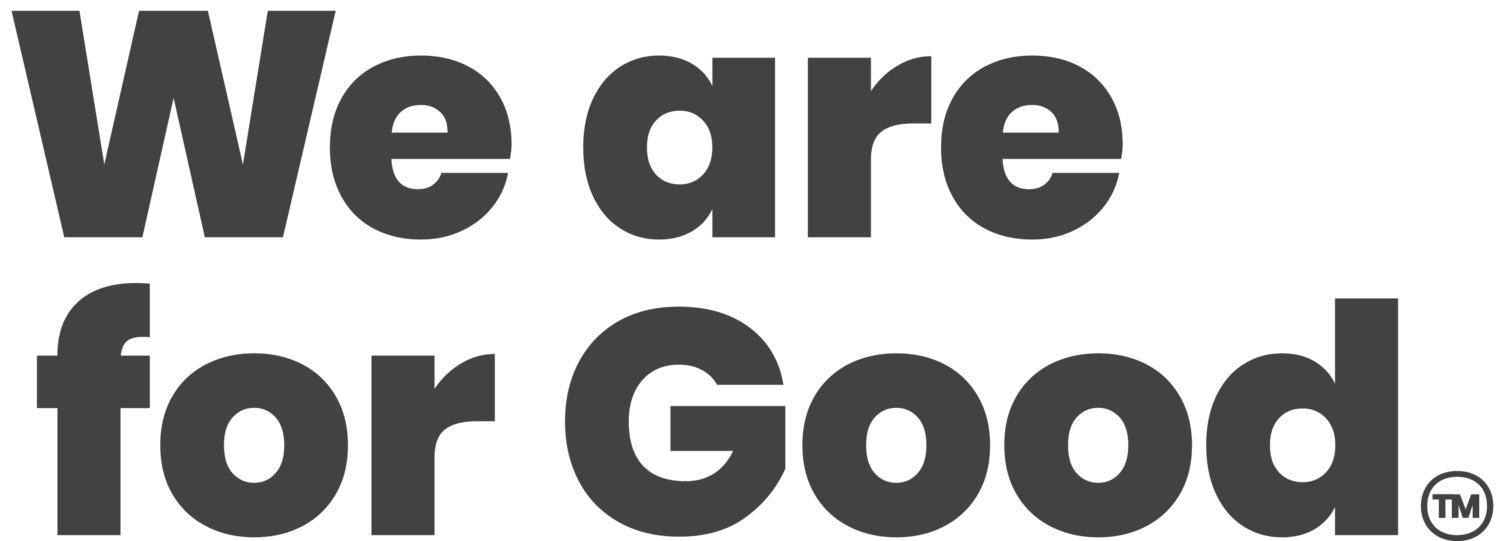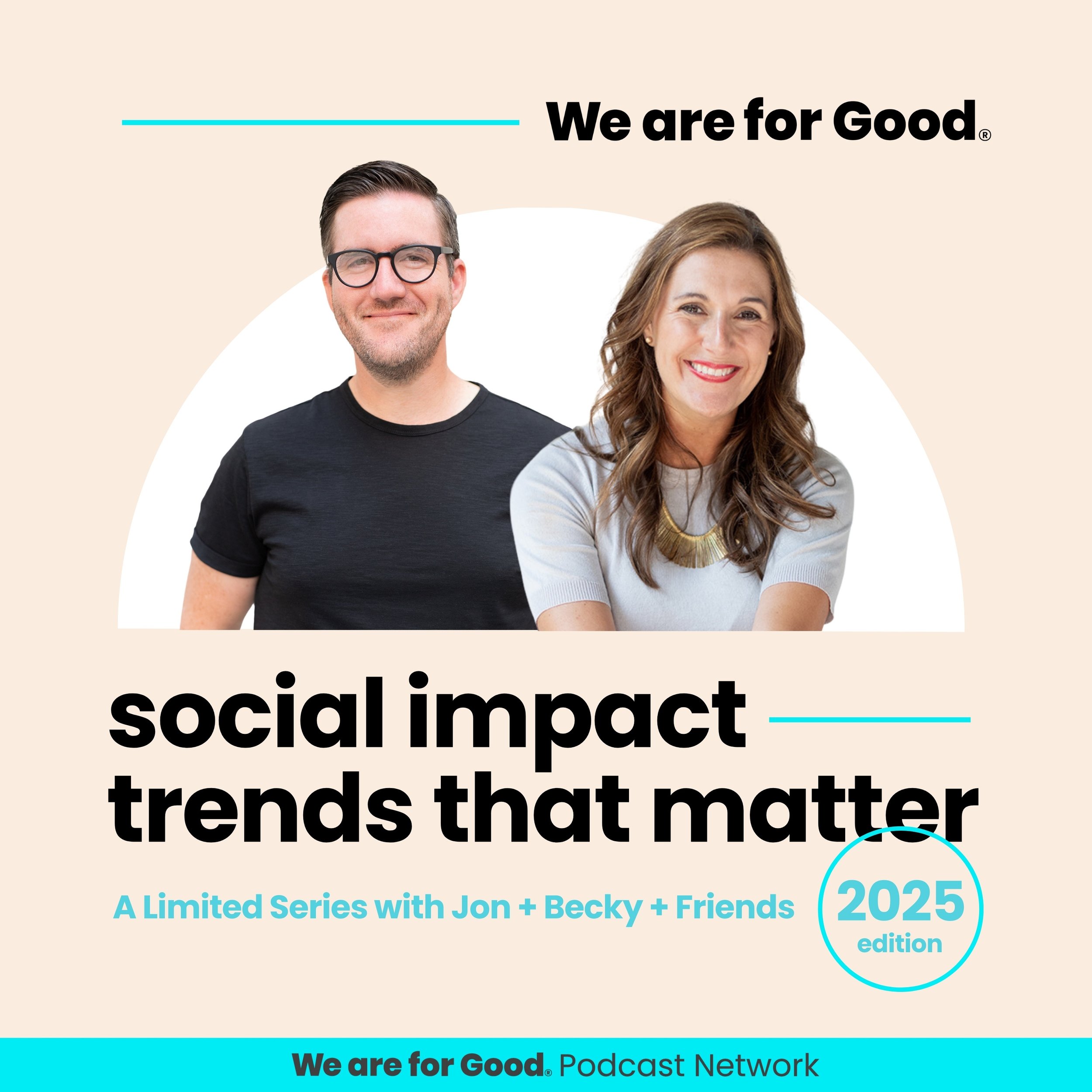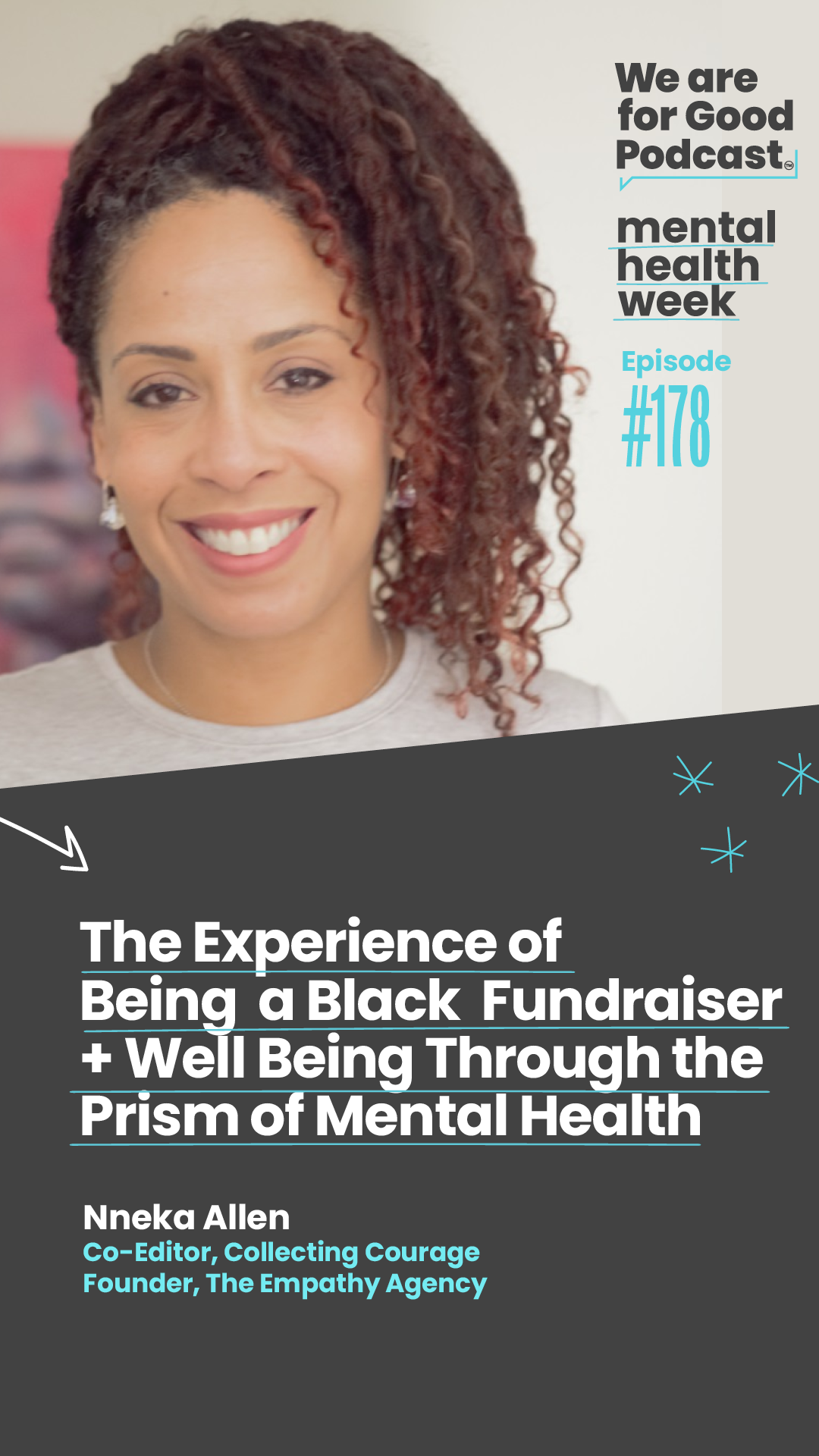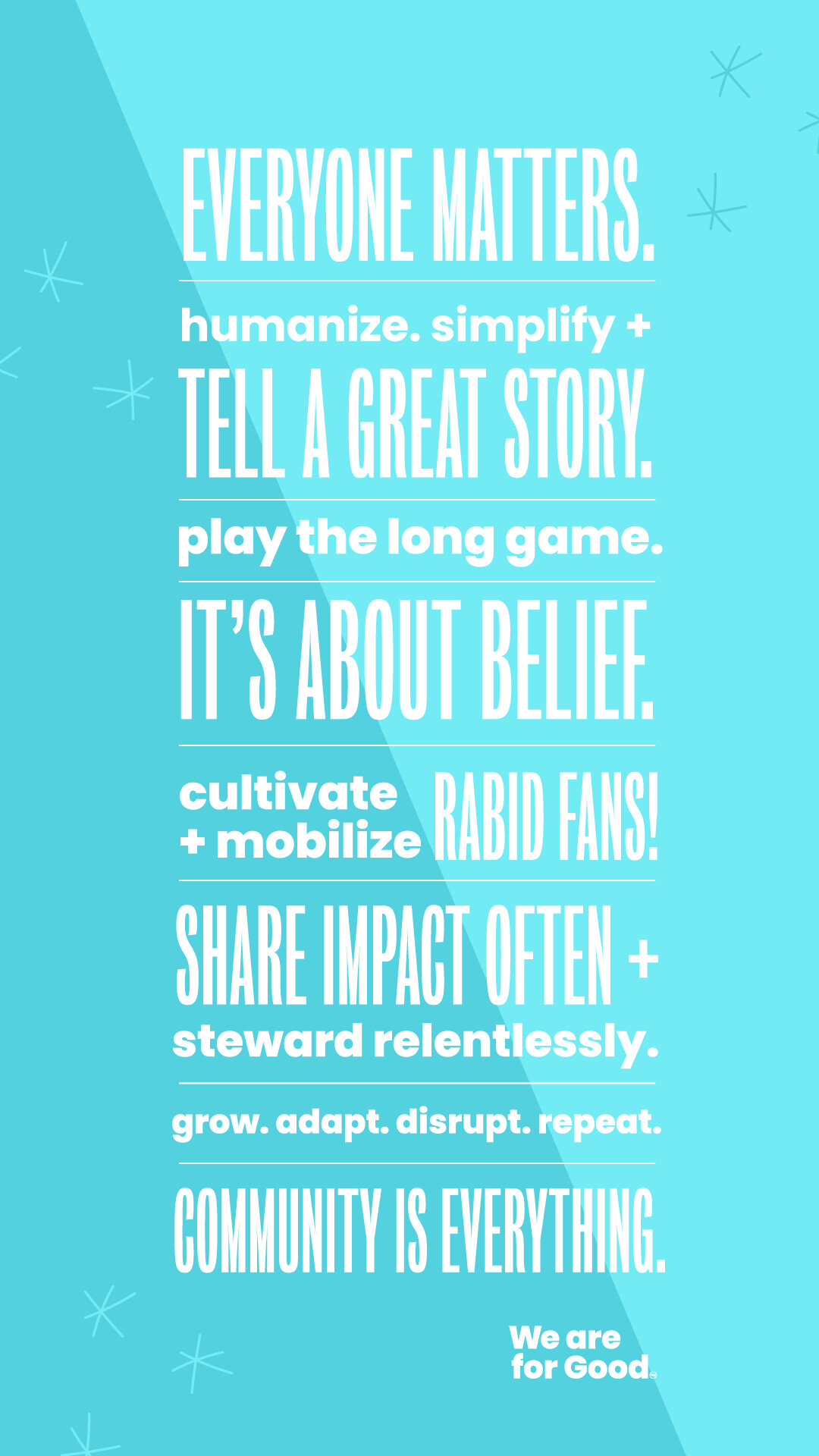178. The Experience of Being a Black Fundraiser - Nneka Allen
Today’s episode is part of a 5-day Mental Health Week series on the We Are For Good Podcast. Explore the other episodes and resources here.
Listen to this episode
Overview
Meet Nneka. She is the author and joint editor of a book featuring first-person narratives of 15 Black fundraisers in the U.S. and Canada. It's a painfully raw glimpse into the harsh realities that still exist for our black fundraiser friends (many of whom you've heard on this podcast). Unwinding systems of power start with sharing story. We hope you'll join us around Mom's Kitchen Table to talk about how to be a Pioneer and Champion of this movement. We need you.
Today’s Guest
Nneka Allen, Founder, The Empathy Agency, and Co-Editor, Collecting Courage
“This work begins with the individual, the only person we have any control over, in fact. Understanding who we are, in the context we live in, is vital. How else can we understand how to relate to other people? We can’t. You have to first know thyself, and we’re infrequently invited into space to do that work.”
Episode Transcript
Download Full Episode Transcript Here
episode highlights
Nneka’s story and journey to where she is today (5:30)
Our Right to Heal (13:00)
Individualized and systemic racism Nneka has experience during her career (16:00)
The current state of mental health in the nonprofit sector (32:00)
Pioneers and Champions: It is only in community where we thrive (35:00)
What you can do today to become a champion: focus on proximity. (39:00)
Where do you need to lay your gifts to work in the direction of justice? (41:00)
Nneka’s One Good Thing: Focus on these 4 ingredients: Humility, Courage, Community and Well-Being.
Powerful quotes
“As I went through the process, I started to see myself more clearly I started to recall the things that my parents had said, and were continuing to say to me and my brother as we were growing up, I could I actually saw in print form the lives of people and families that I knew.” -Nneka
“About five years ago, I found myself supporting quite a few young black women in particular, who were in the nonprofit sector struggling in very similar ways, to the way I had been struggling and so began offering my support to them, so that they could navigate, but more than that, so they could survive.” -Nneka
“I wrote them and said, so I don't hear or see any voices, or any faces that look like mine, which are black and Canadian. And yet, I've been a member of this association for quite some time. And I think we have something to share. And here's some of the ways that maybe we could contribute.” -Nneka
“Living in a system that says I am not as qualified or I am not as good, or I should not be in certain places as a result of my skin color is the context that we exist in. And then we also experienced the individualized racism.” -Nneka
“This is inner work, this is our work as individuals, it has to start there. If it doesn't start there, we really will go nowhere.” -Nneka
“We have to acknowledge that there is trauma. And I find you know, as a black woman, we are frequently invited into spaces to do that, because we have so many things we have to do to survive, right?” -Nneka
“I think it comes back to the individual again, you know, all of us, not just black people, not just brown people, not just indigenous people, all of us, white people included, have a role to play. And I would say white people have a particular role to play because of the responsibility and because of the power that they hold. And this work begins with the individual, the only person we have any control over, in fact. And so understanding who we are, in the context we live in, is vital. How else can we understand how to relate to other people, we can't, you have to first know thyself, and we're infrequently invited into space to do that work.” -Nneka
“When we think about who's on the margins of our organizations, on the margins of society, how are we centering them? It requires great humility, to then follow those who used to be relegated right to the margins.” -Nneka
“So many of the solutions that we seek in our organizations, those communities already have.” -Nneka
“It is expressing something more robust than what we currently know, in our organizations. I would say that's because of our legacy of philanthropy. In the African diaspora, which predates this westernized version of philanthropy, is rooted in reciprocity, and communalism and resist individualism. And so it's only in community where we thrive. It's actually the only way that I sit with you today. I wasn't supposed to be here. But I sit here because of community.” -Nneka
“I think the number one thing we can do is get in proximity.” -Nneka
“Let me just say this, we live in a segregated society. We don't say that anymore. No one's really talking about that. But it is in fact segregated.” -Nneka
“How do we have to change our lives so that we're not living in a segregated society anymore?” -Nneka
“You're going to have to rearrange and change your life. Getting in proximity with people who are on the margins of society requires a changing of your life, which is the reason why this work starts with the individual.” -Nneka
“As you have that proximity with people who are different, who are living a different experience than you, who see the world differently than you, you will begin to learn in so many ways that I couldn't even begin to articulate it all. There's no substitute for that type of learning. We were created to be relational. Being in relationship cultivates something that we need, in order to begin to see, what is the path forward look like for me? Where do I need to lay my gifts to work in the direction of justice?” -Nneka
“I hope that we all strive to be humble, that we always resist fear, that we allow courage to emerge, and above all else, that we root ourselves in community.” -Nneka
connect with nneka
Website / Collecting Courage / LinkedIn
Books Mentioned in This Episode 👇
Collecting Courage: Joy, Pain, Freedom, Love
My Grandmother’s Hands by Resmaa Menekem
Rate, Review, & Follow on Apple Podcasts
Are you a fan of the We Are For Good Podcast? Please consider rating and reviewing our show! This helps us serve more do-gooders — just like you — grow their own impact uprising.
First time doing reviewing a podcast? Don’t sweat - it’s super easy! Click here, scroll to the bottom, tap to rate the show with stars, and then click “Write a Review.” We’d love to hear what you loved most about this episode!
While you’re there, if you haven’t done so already, would you consider subscribing to the podcast? We curate inspiring conversations weekly to help you do more for your mission (and the occasional surprise minisode too!) and if you’re not subscribed, you could totally out. Subscribe now!
Join the Good Community!
The We are for good community
This is a safe place for deeper conversations. While we love this podcast, it is a very one-sided dialogue. It is great for starting conversations, but not continuing them. You can find friends, colleagues, and others to champion alongside. We believe community is everything and we wanted to create a place where people could learn and thrive and grow together (and also have a whole lot of fun).
About our Sponsor Givebutter
Givebutter is Loved by over 35,000 nonprofits, student groups, sports teams, schools, companies, and individuals just like you, and PS: it’s also loved by the three of us who are superfans of their incredible giving platform. 💛
Givebutter powers more than 35,000 good causes with their end-to-end fundraising solution - and we love it because it's completely free.
Givebutter empowers missions across the country and those on the frontlines of de-stigmatizing mental health, like NAMI Nevada.
Throughout the pandemic, quarantine and social distancing requirements were contributing to a massive increase in anxiety and depressive disorders across their state. So NAMI Nevada put together an innovative fundraiser powered by Givebutter to introduce the greater Nevada community to ways they can move forward—no matter the circumstance they were dealing with.
They eclipsed the goal of their crowdfunding campaign and shared how much they loved Givebutter’s ease of use and the power of its human-to-human connectivity to grow their impact.
Watch the full story and interview with NAMI Nevada Executive Director here.























